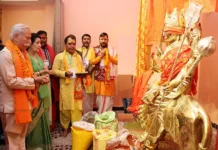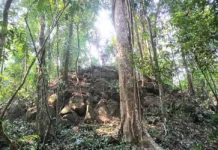ITANAGAR, 9 Nov: Chief Minister Pema Khandu on Sunday announced the formation of the Yak Federation of India, a collective platform aimed at uniting yak herders across the Himalayan belt to promote sustainable livelihoods, cultural preservation and stronger policy coordination.
The chief minister made the announcement after an interaction with a delegation of yak herders from Ladakh, Sikkim, Arunachal Pradesh, Nepal and Bhutan here.
Calling it a “significant step” towards preserving tradition, enhancing livelihood and strengthening the yak ecosystem across the Himalayas, Khandu said that the federation will act as a bridge between herders, governments and other stakeholders.
“Yak is not just a source of livelihood; it is an integral part of the culture, heritage and identity of Himalayan communities,” Khandu said in a social media post, underscoring the deep social and spiritual connection between the people of the region and their hardy mountain companion.
The chief minister added that from sustenance to economic value, the yak has been a core pillar for generations of Brokpas across the trans-Himalayan belt, serving as a vital source of milk, wool, and transport in high-altitude areas where other forms of livestock and mobility are limited.
“With the active participation of all members, we have collectively decided to constitute the Yak Federation of India. This platform will bring all yak herders together, enabling coordinated efforts, teamwork and stronger policy interventions with both government and non-government organisations,” Khandu said.
The yak (Bos grunniens), often called the ‘lifeline of the highlands’, is a domesticated bovine species adapted to the extreme conditions of the Himalayas and Tibetan plateau.
For centuries, it has been indispensable to the trans-Himalayan communities providing milk, butter, wool, meat, and acting as a resilient beast of burden in terrains inaccessible by vehicles.
In Arunachal, particularly among the Brokpa and Monpa tribes, yak-herding is more than an occupation; it is a tradition handed down generations, forming the cultural fabric of highland societies.(PTI)


